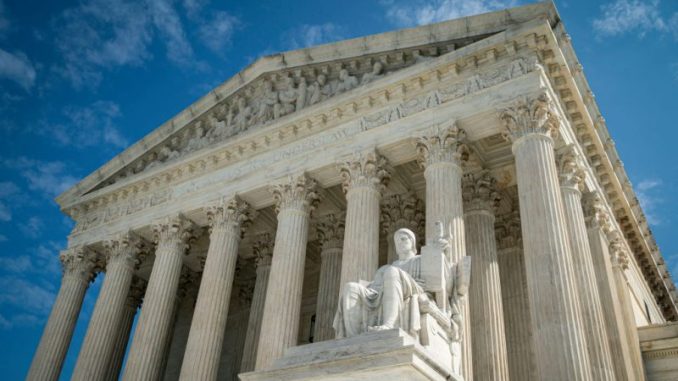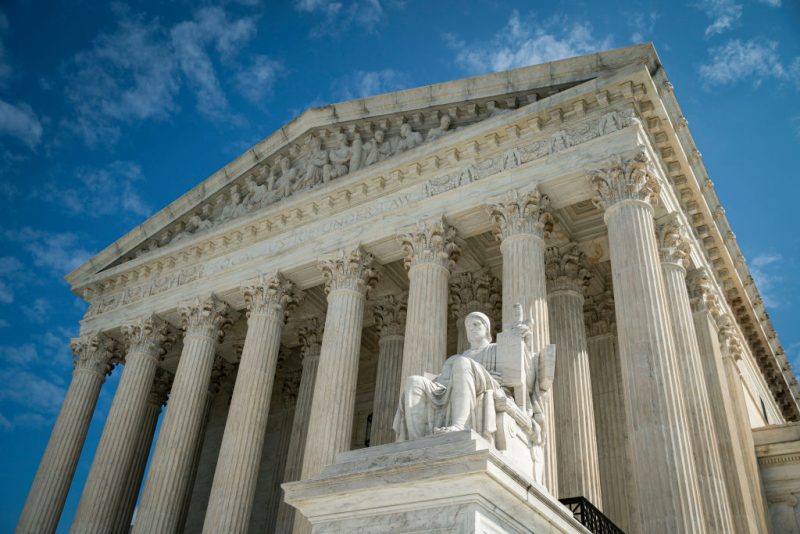

OAN’s James Meyers
10:33 AM – Thursday, June 20, 2024
On Thursday, the Supreme Court of the United States (SCOTUS) rejected a challenge to a 2017 tax law passed by Congress.
Advertisement
The challenge stemmed from a case, Moore v. United States, which considered whether the 16th Amendment permits taxing unrealized gains.
Kathleen and Charles Moore sued for a refund in 2019 after they were given a $14,729 tax bill for their investment in an overseas business, even though they never received any payment in earnings from the company.
The bill followed Congress’ passage of the 2017 Tax Cuts and Jobs Act, which imposed a one-time Mandatory Repatriation Tax (MRT) on shareholders with a 10% stake in foreign companies that earned profits. It does not matter whether or not those profits were “received.”
“The MRT—which attributes the realized and undistributed income of an American-controlled foreign corporation to the entity’s American shareholders, and then taxes the American shareholders on their portions of that income—does not exceed Congress’s constitutional authority,” the majority held.
Additionally, Justice Brett Kavanaugh wrote that the ruling was limited to “(i) taxation of the shareholders of an entity, (ii) on the undistributed income realized by the entity, (iii) which has been attributed to the shareholders, (iv) when the entity itself has not been taxed on that income.”
“In other words, our holding applies when Congress treats the entity as a pass-through,” he continued.
Previously, the Ninth Circuit court ruled against the Moore family in 2022, and said in its decision “the first court in the country to state that an ‘income tax’ doesn’t require that a ‘taxpayer has realized income.’”
The Moore family argued that the lower court ruling upsets “long-settled expectations undergirding practically all capital investment across the economy,” saying the tax “does great violence to constitutional structure, virtually eviscerating Article I’s apportionment requirement.”
“The logical implications of the Moores’ theory would therefore require Congress to either drastically cut critical national programs or significantly increase taxes on the remaining sources available to it—including, of course, on ordinary Americans,” Kavanaugh wrote in the majority opinion. “The Constitution does not require that fiscal calamity.”
Justice Clarence Thomas argued that the money at issue should not be taxed because: “the Moores never actually received any of their investment gains.”
“Even as the majority admits to reasoning from fiscal consequences, it apparently believes that a generous application of dicta will guard against unconstitutional taxes in the future,” Thomas wrote. “The majority’s analysis begins with a list of nonexistent taxes that the Court does not today bless, including a wealth tax.”
Stay informed! Receive breaking news blasts directly to your inbox for free. Subscribe here. https://www.oann.com/alerts






Be the first to comment